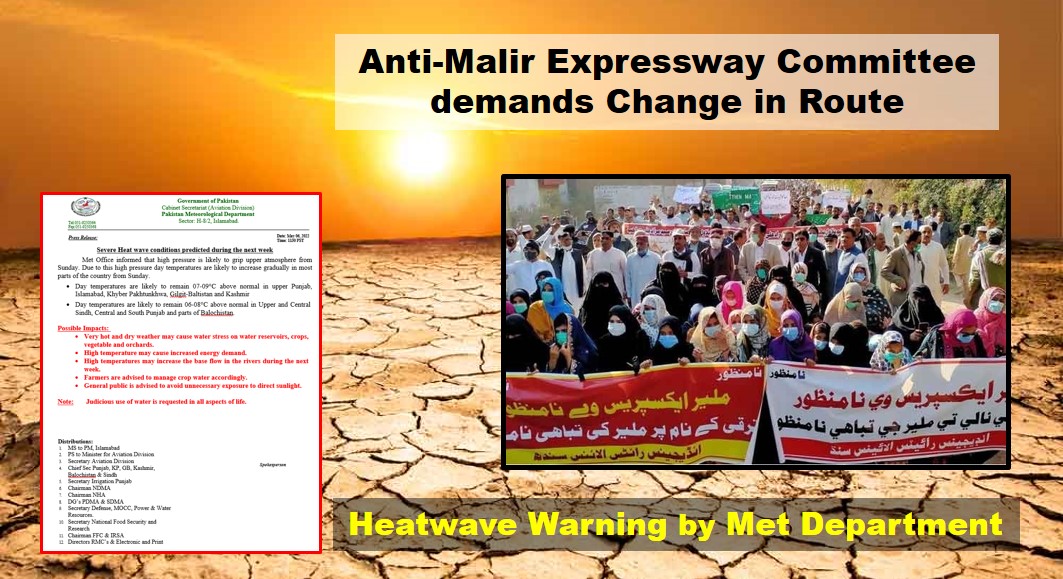8 May 2022
Anti-Malir Expressway Committee demands Change in Route
Local communities and environmental activists demand change in the route of Malir Expressway immediately as its current development on the right bank of the Malir river would have far reaching implications on Karachi, already experiencing 1.5-degree Celsius increase in its temperature. They demanded in a press conference at the Karachi Press Club, organised by citizens directly being affected by the project and environmental activists. It`s estimated that the project would destroy shelters of more than 1,500 people, 210 permanent housing units, and 66.35 acres of privately-owned agriculture land excluding 49 acres of built-up area.
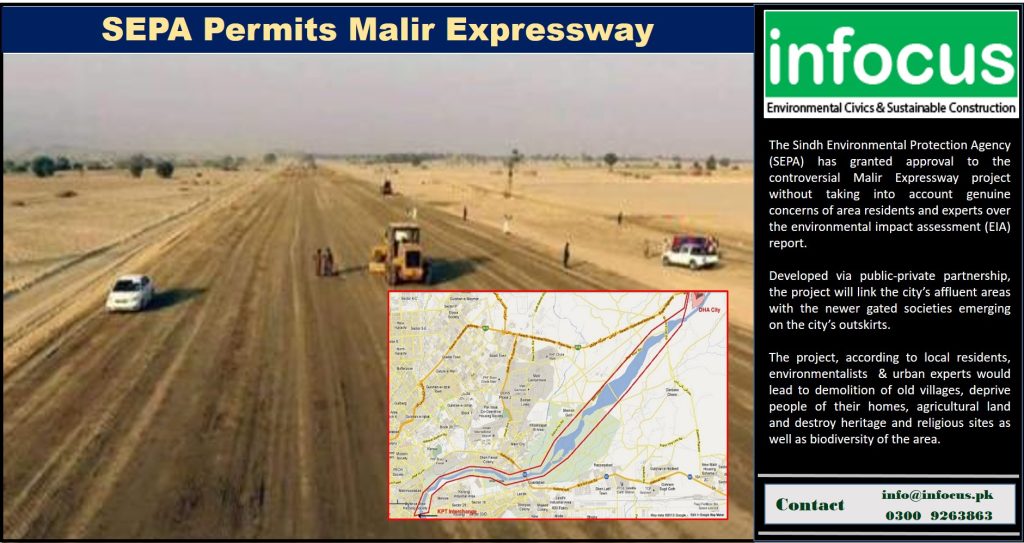
An Anti-Malir Expressway Action Committee’ representative says “The project is solely being built to benefit the builder mafia by increasing the property value of the projects recently developed by them on Malir`s agricultural lands”. While the project is being built at the expense of city`s environment and the homes and crops of people already mired in hunger and poverty so that the elite of an impoverished city like Karachi could have more facilities. Pointed at the potential urban flooding risk, other speakers also reveal the project site is one of the last remaining green belts on city`s suburbs that had been playing a crucial role in mitigating the impact of climate change.
Heatwave Warning by Met Department
The Pakistan Meteorological Department forecast “severe heatwave conditions” across Pakistan during the next week, stating that high pressure was likely to grip the upper atmosphere. In their official notification it states the temperature during the day was likely to remain between 7 to 9 degrees Celsius above normal in upper Punjab, Islamabad, Khyber Pakhtunkhwa, Gilgit-Baltistan and Kashmir.
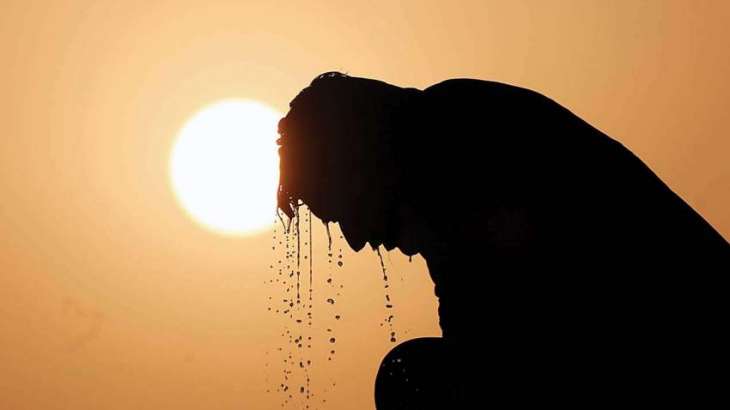
Also , according to an international research published this week, extreme heat across much of India and neighboring Pakistan in March and April exposed more than a billion people to scorching temperatures well above 40 Celsius, while the hottest part of the year is yet to come. Forecasting rise in heatwaves, floods, cyclones and droughts, the research further states that air quality has deteriorated, and large swathes of land are at risk of extreme fire danger. Power blackouts last week as electricity demand hit record levels served as a warning of what might happen if temperatures were to climb even higher.
Asian Development Bank’ Support on Water Security
In a case study on the completion of the new Khanki Barrage project, the Asian Development Bank has suggested to Pakistan that holistic governance across sectors is required to address the growing competition for water and to manage the effects of pollution, wastewater, floods, droughts and land degradation at present and in the future. Therefore, appropriate policies must be put in place to promote integrated management and development. The case study, released this week, says projects, such as the New Khanki Barrage have proven to be successful and can serve as models to guide development partners in designing future irrigation projects.
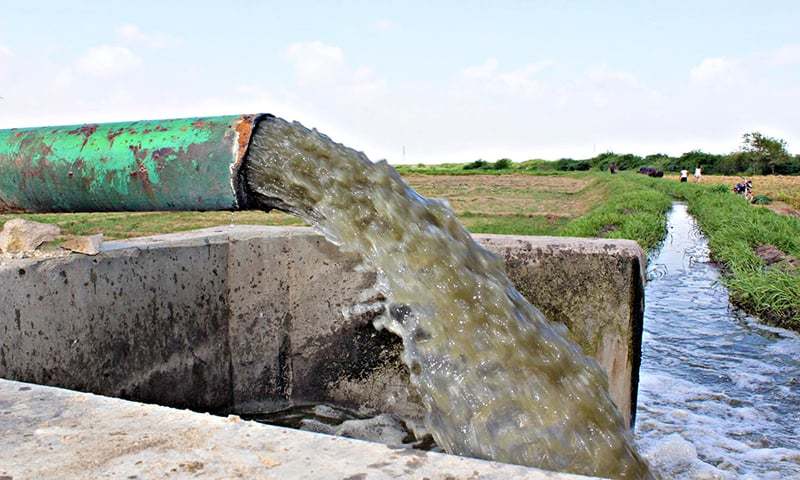
ADB provided $270 million loan to Pakistan for the construction of new Khanki Barrage on River Chenab at 275 m downstream of the old Khanki Headworks, when an irrigation department study had indicated a very high chance that a major flood could damage the Khanki Headworks and breach its embankments, causing significant loss of lives and damage to property, including crops and livestock. The ADB case study further states future irrigation projects will also need to be informed by solutions to water-related problems in several sectors, particularly agriculture.
UN warns on diminishing forest cover
According to a report namely ”State of the World”s Forests 2022 released by the Food and Agriculture Organisation of the United Nations, some 47 million hectares of primary forests was lost between 2000 and 2020. The report warns that forests` area, which covers 31% of the Earth`s land surface (4.06 billion hectares), is shrinking, with 420 million hectares of forest lost through deforestation between 1990 and 2020. The rate of deforestation is declining, but it was still 10 million hectares per year in 2015-2020.
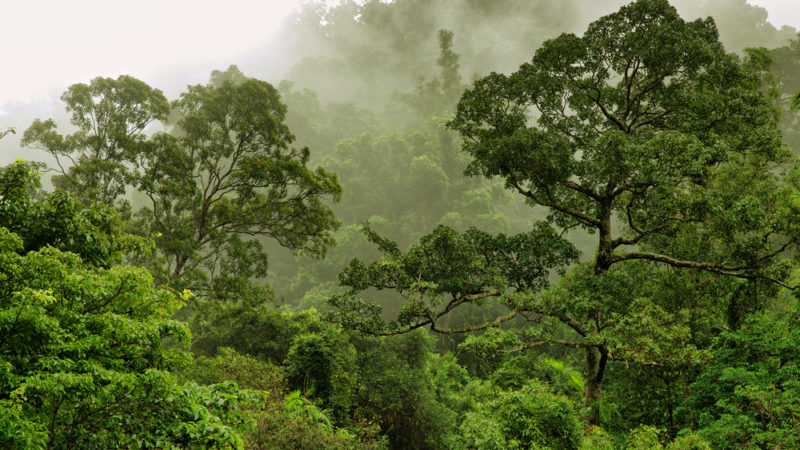
Forests contain 662 billion tons of carbon, which is more than half the global carbon stock in soils and vegetation. Despite a continued reduction in area, forests absorbed more carbon than they emitted in 2011-2020 due to reforestation, improved forest management and other factors. It is estimated that more than half of world gross domestic product ($84.4 trillion in 2020) depends moderately ($31 trillion per year) or highly ($13 trillion per year) on ecosystem services, including those provided by forests.

